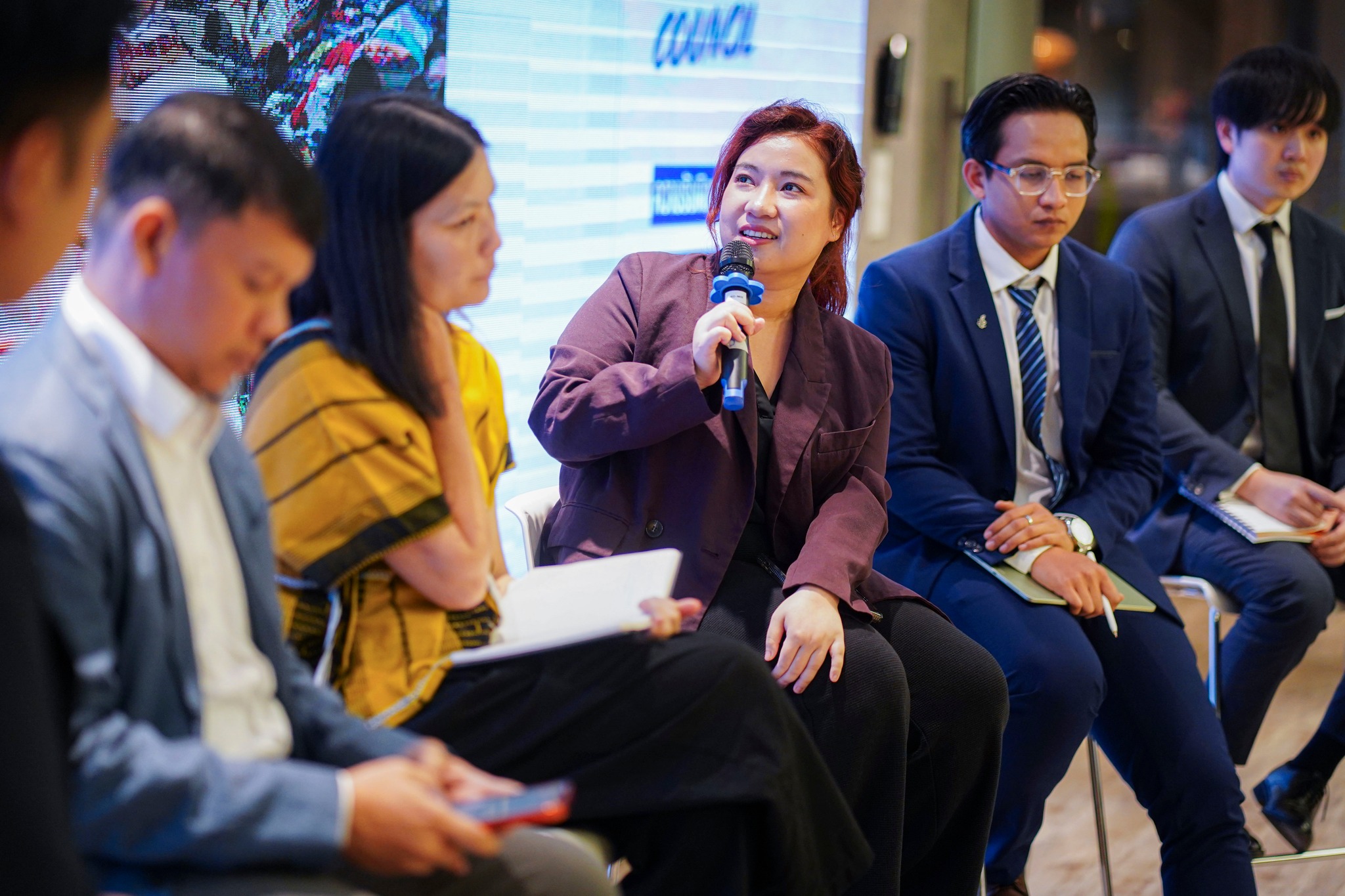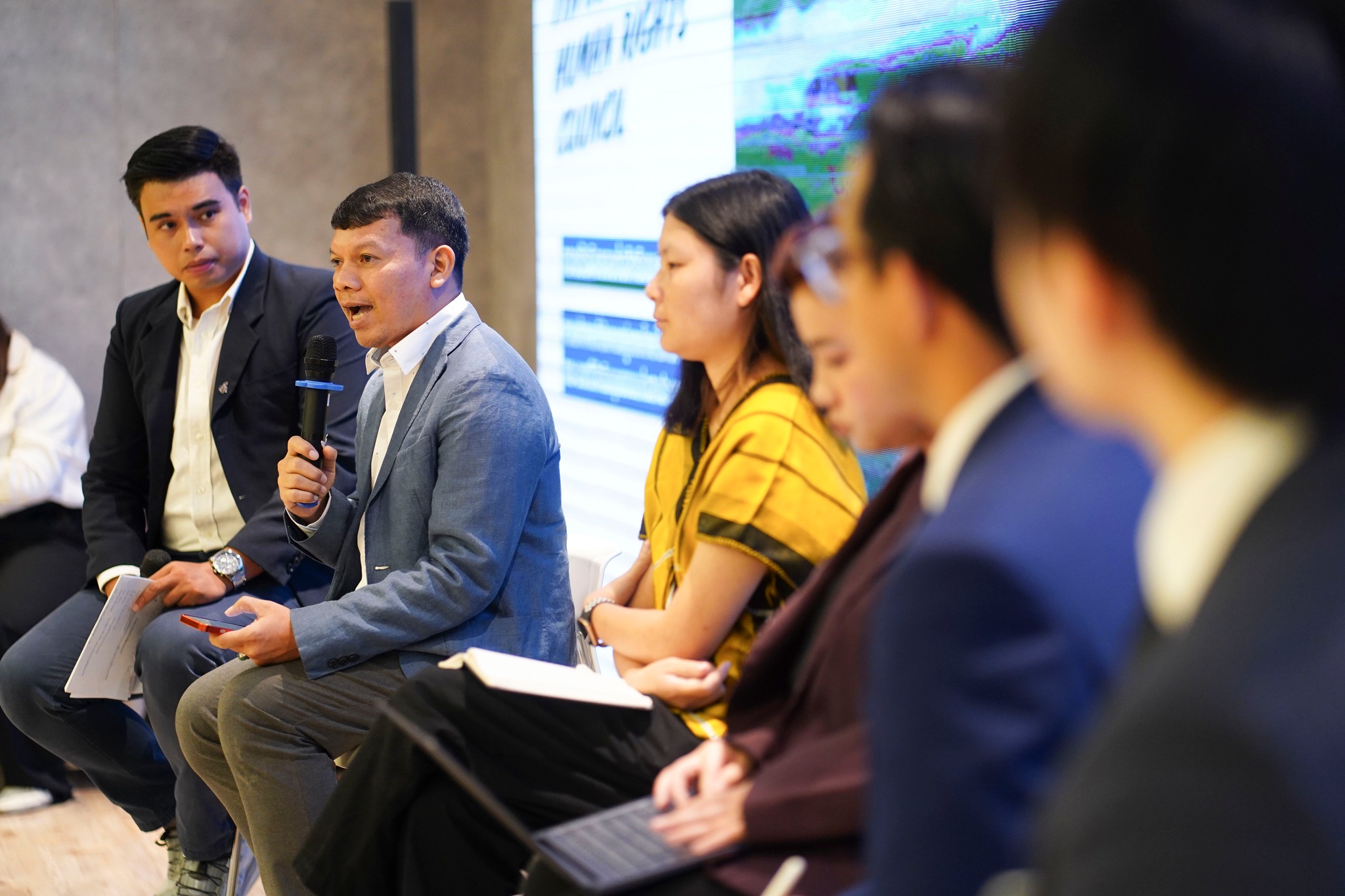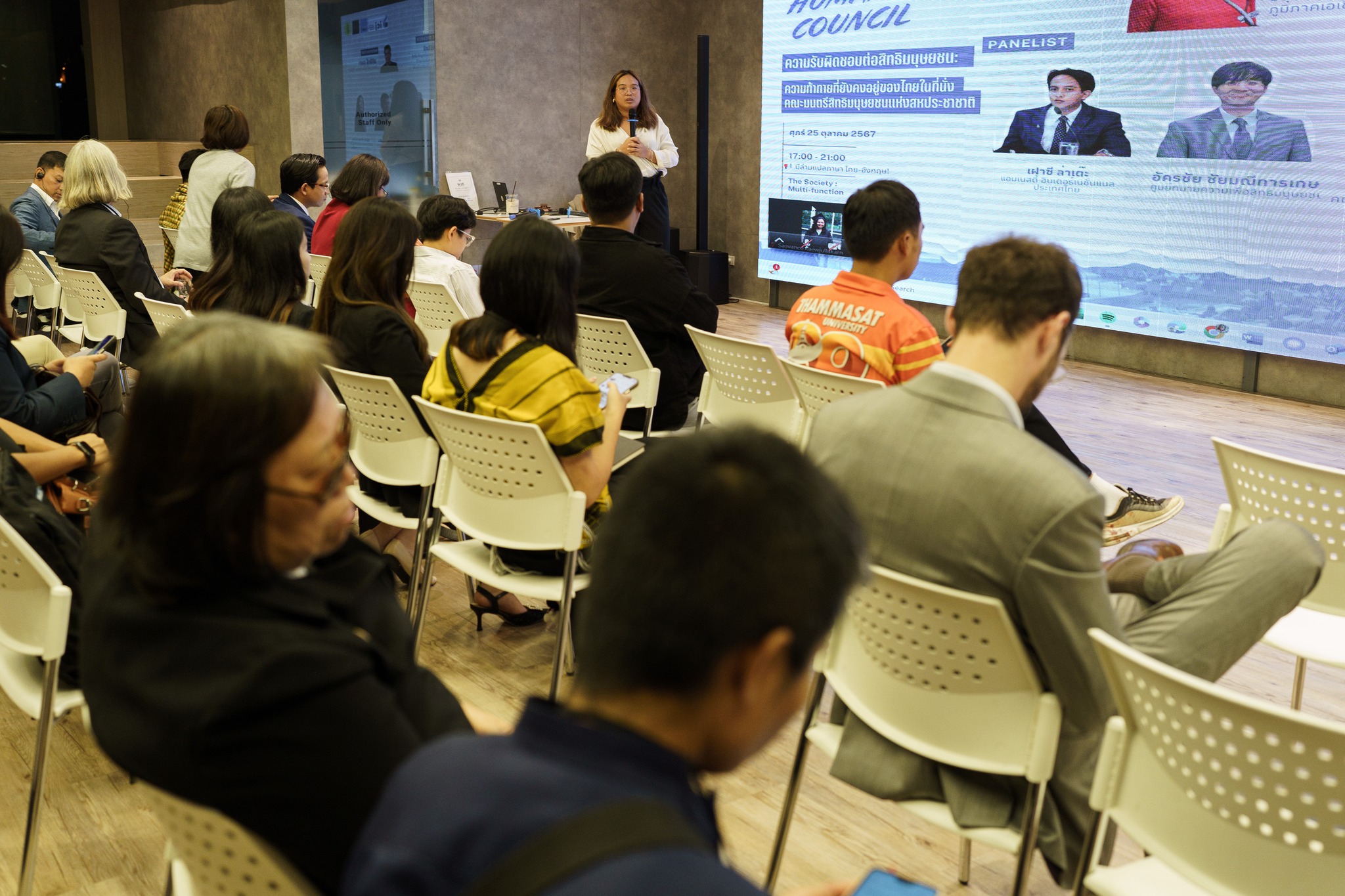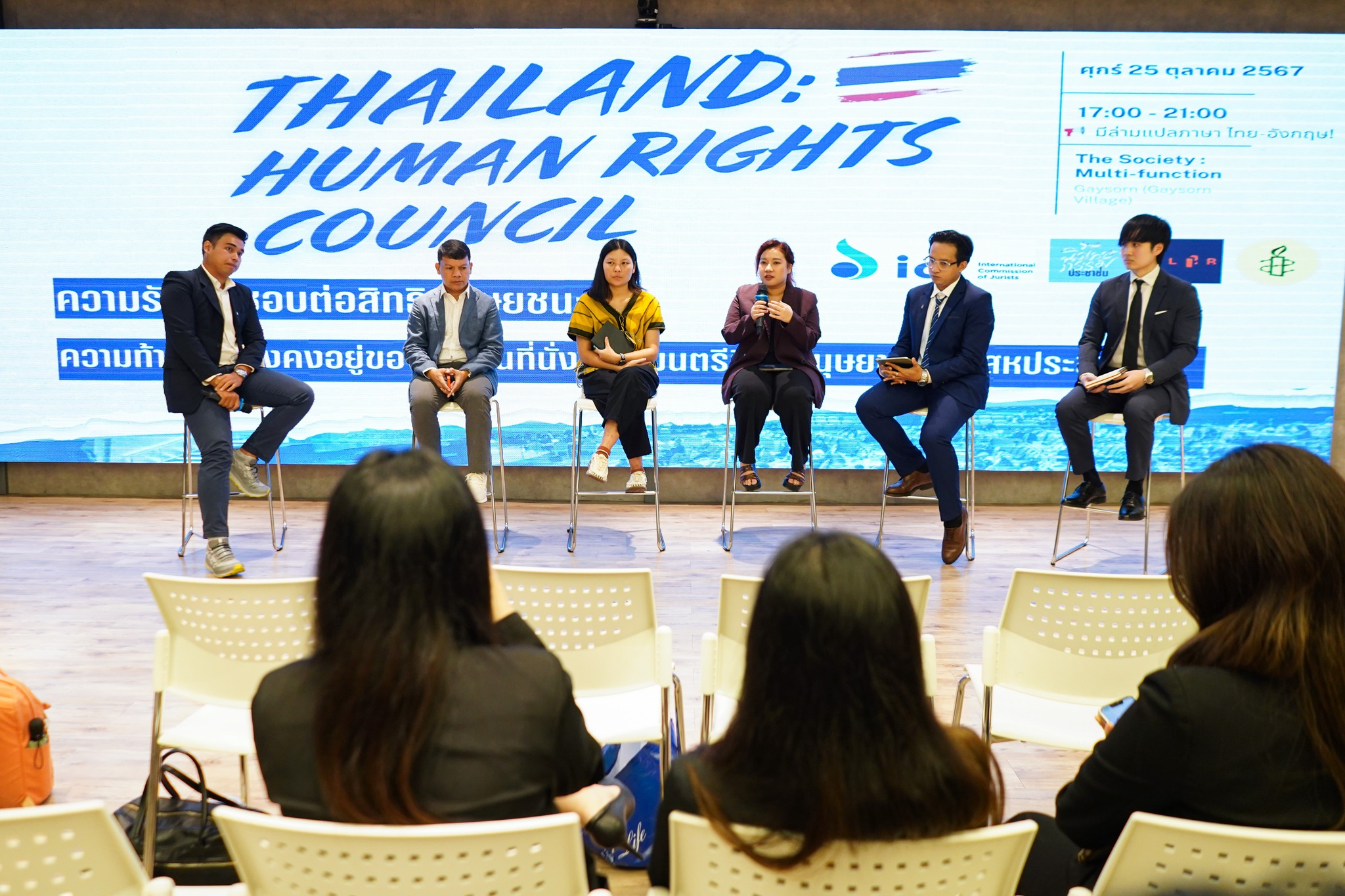On 25 October 2024, the ICJ co-hosted a public dialogue with Amnesty International Thailand, Thai Lawyers for Human Rights (TLHR), and the People’s Amnesty Network to discuss measures authorities should take to fulfill its human rights obligations and commitments, in light of its election on 9 October to the United Nations Human Rights Council (HRC) for the 2025-2027 term.
The discussions highlighted persistent human rights violations in Thailand, recalling recommendations and observations made to the Thai government by independent experts of the Council itself, as well as UN treaty bodies. Participants emphasized the gap between these recommendations and domestic realities and proposed actionable steps to strengthen human rights protections in the country.
Speakers reminded Thailand of its own pledges made during its HRC candidacy. These include commitments to revise legislation and policies to implement, in law and practice, human rights treaties to which it is a party, and to take into account recommendations from treaty bodies and the HRC’s Special Procedures and Universal Periodic Review (UPR) outcomes.
Participants noted that many of these commitments remain unfulfilled. Useng Dolah of the Muslim Attorney Centre Foundation’s recounted the 2004 Tak Bai incident, in which 85 protesters were killed in Thailand’s Tak Bai district, and explained how, within a month of Thailand’s election to the HRC, the government failed to prosecute and hold accountable any alleged perpetrators before the statute of limitations expired, despite arrest warrants issued by the courts. As Sanhawan Srisod, ICJ Legal Adviser, made clear, recommendations from various UN human rights mechanisms relating to this case appear to have been ignored.
These included recommendations from nearly a decade ago, from both the UN Committee Against Torture (since 2014) and the UN Human Rights Committee (since 2017), to ensure effective and impartial investigation, prosecution and appropriate sanctions in cases involving the unlawful use of force by law enforcement and the military. Additionally, in a recent statement on 24 October 2024, a number of the HRC’s Special Procedures jointly reiterated that Thailand’s obligation to investigate, prosecute, and provide reparations to victims of the Tak Bai massacre does not cease even with the passing of time, and that failure to do so is itself a violation of Thailand’s human rights obligations.
The adverse effects of economic activities linked to natural resource exploitation were highlighted by Pornchita Faprathanphai, an indigenous person and land and environmental activist. Sanhawan Srisod also called attention to recommendations from the Committee on Economic, Social, and Cultural Rights (since 2015), which included a call for Thailand to adopt a human rights-based approach in development projects and establish participatory mechanisms to ensure that no decisions impacting resource access are made without consulting affected communities. This call echoed a similar entreaty made by the UN Committee on the Elimination of Racial Discrimination in 2022 to Thailand.
Addressing the ongoing prosecution and criminalization of political activists, Akarachai Chaimaneekarakate of TLHR and Faozee Lateh from Amnesty International Thailand reminded Thailand of a joint statement by several HRC’s Special Procedures urging that protesters not face criminal charges for peaceful protest participation and expressing concern over Thailand’s use of emergency measures, sedition, and lèse-majesté charges to disperse and arrest peaceful protesters. Additional communications underscored the incompatibility of applying section 112 of the Criminal Code with international human rights standards. A press release by UN experts on 25 March 2024 also urged Thailand to drop charges against those currently facing prosecution and release individuals sentenced solely for exercising their freedom of expression.
These observations have also aligned with those of the UN Human Rights Committee to Thailand since 2017. However, they have not been implemented and largely remain unaddressed; in some responses Thailand has made to the HRC’s Special Procedures, the claims were dismissed.
The panel concluded with a number of speakers urging Thailand to comply with its pledges made during its candidacy for the HRC, including ensuring domestic compliance with its human rights obligations and commitments as outlined above.
In response, Pimpida Ravirat Thanarat, Counselor of the Social Division at the Ministry of Foreign Affairs (MoFA), who also participated in the panel, acknowledged the recommendations and indicated that the MoFA intends to hold consultations soon with relevant authorities to strengthen collaboration with CSOs on these issues.
A video recording of the panel discussion is available for viewing here.



Contact
Sanhawan Srisod, Associate International Legal Adviser, ICJ Asia and the Pacific Programme, e: sanhawan.srisod@icj.org




